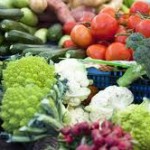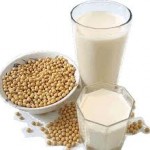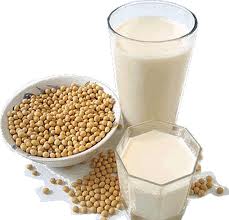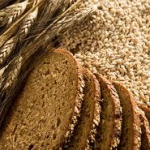Just only recently have we seen some really good research showing the association between certain foods and nutrients and brainpower. Most of us know that after 40 we’re sort of in a decline. Our eyes are getting worse; we get injured more easily exercising; and our brain isn’t quite as sharp as we remember it being in our earlier years.
There are a few really great things we can do, again, to put our brain’s best foot forward:
 Lots of fruits , particularly blueberries. There are some great recipes in the book. Cranberries and boysenberries are also good sources of the particular phytochemicals that have been linked to slowing the brain from aging.
Lots of fruits , particularly blueberries. There are some great recipes in the book. Cranberries and boysenberries are also good sources of the particular phytochemicals that have been linked to slowing the brain from aging.- Vegetables . The antioxidants in vegetables can be helpful. Generally you want the rich colored ones; the brighter the green, the deeper the orange, the more antioxidants they have.
- There are two other brain-worthy vitamins to mention: folic acid , again, and B-12 . B-12 is the vitamin we can only get generally from animal foods, so if you’re getting those two servings of reduced-fat dairy products, you’ll be getting some B-12. Particularly high B-12 foods are:
- Clams
- Oysters
- Shrimp
- Herring
- Crab
- Trout
- Salmon
- Tuna in water
- Lean beef
- Lean lamb
- Low-fat yogurt
- Nonfat milk
- Low-fat cottage cheese
 Those are just some of them. Also soy has been linked to helping our brain function. There’s that soy again. Experts suspect that the isoflavins in soy are working together with other antioxidants.
Those are just some of them. Also soy has been linked to helping our brain function. There’s that soy again. Experts suspect that the isoflavins in soy are working together with other antioxidants.
It seems like I need more sleep/rest these days than I used to. I always thought as we got older we need less sleep. Why am I so tired?
Your body’s going through some changes. Not sleeping as well is because of the night sweats, mainly. It disrupts your sleep. You’re more moody because you are not getting enough sleep. A lot of the suggestions we’ve talked about can really help you. Hang in there for many weeks. It takes time for all this to kick in.
Let me give you five quick tips to fight fatigue with food:
- No. 1: Give your body a well-balanced, healthy diet, because your body needs fuel for energy, and drink plenty of water.
- No. 2: Start your day with a lower-fat, higher-fiber breakfast. And lower sugar. What we’re trying to do is eat smart carbs and smart fat. You want to give your body high-quality food to run its best. Garbage in, garbage out. Staying away from foods that offer calories without a lot of nutritional benefit is key at this time of your life and after. It’s not that you can’t have cookies or cake or pie; it’s just they need to be smaller portions and less often. So the majority of your food choices should hopefully be higher-fiber, nutrient-rich healthy foods.
- Tip No. 3: Eat smaller amounts of food more frequently during the day instead of eating just two large meals, because large meals zap you of your energy, and so does going hungry when you have large gaps between meals.
- Tip No. 4: Include fresh fruits and vegetables, whole grains, lean meats (or vegetable protein if you’re a vegetarian), and fish and low-fat dairy in your diet to make sure your diet is balanced and you’re getting all the nutrients you need.
- Tip No. 5: Don’t fill up on high-fat or high-sugar foods, because they tend to leave you feeling sluggish, if not right away then shortly thereafter.
I’ve found that indulging in carbs makes me sleepy and increases my hot flashes. Is this just my imagination or is there merit to it?
There could be a couple things going on there. Carbs do have a calming effect, which ties into the happy foods I was talking about earlier. You may say it makes you sleepy, but another way of saying it is it makes you calm. You can moderate this effect by having smaller-sized meals. Any time we fill our stomach it tends to make us sleepy, because our body is diverting blood from the general circulation into the digestive tract to help with digesting. That’s another benefit to having the smaller meals through the day. It’s a little less practical when you’re working out, but shifting to this way of eating is something to keep in mind.
Choose smart carbohydrates whenever possible. These would be carb-rich foods that offer nutrients and fiber along with its calories. This may also help decrease the sleepiness. Steer away from carbs that don’t have a lot of nutritional value and tend to have a higher glycemic index and move more toward the carbs that have what I call a lower glycemic load on the body. That would be your whole fruits and vegetables, dairy, all those things we’ve been talking about. It really all fits together nicely when you look at the big picture.

